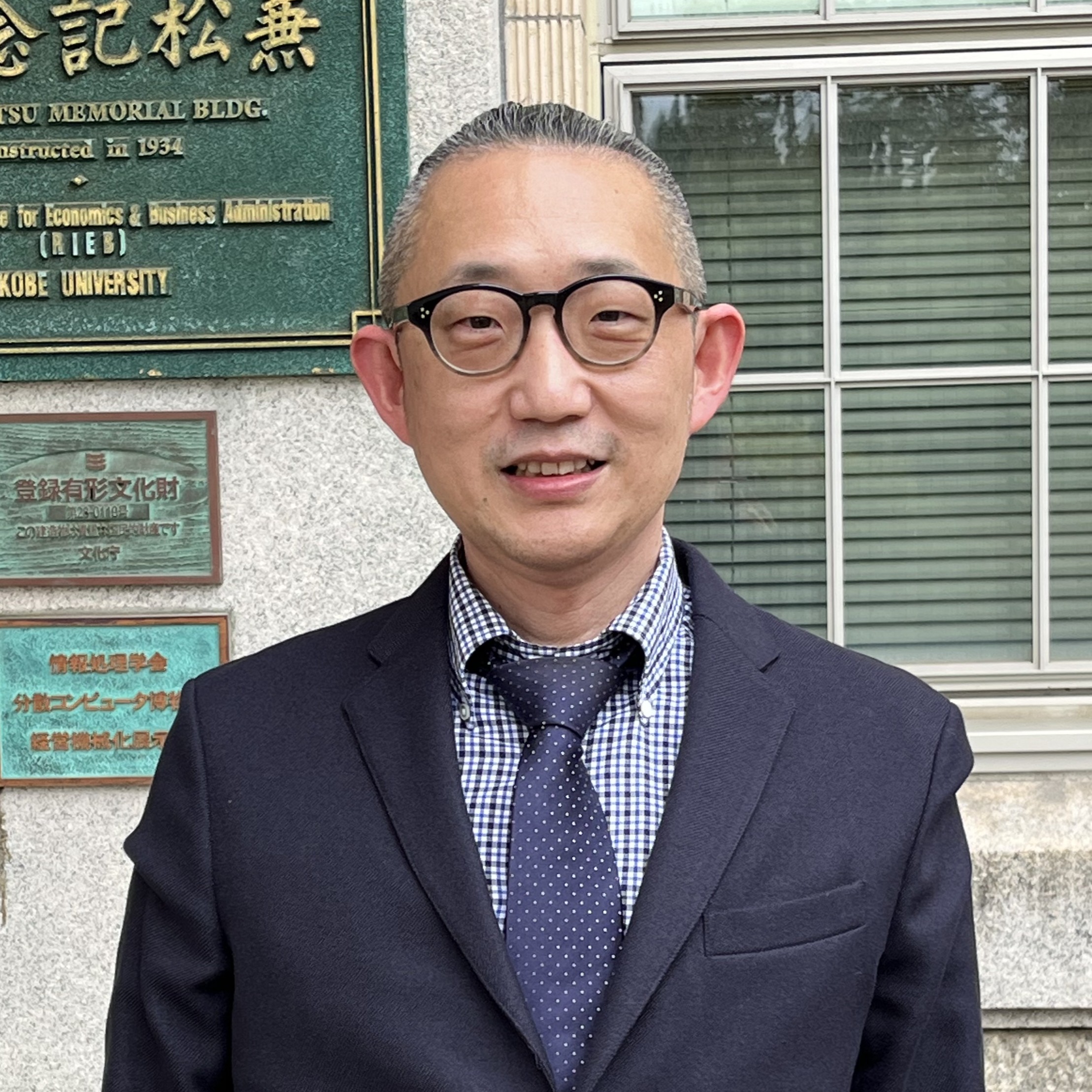Director's Message

Research Institute of Economics and Business Administration (RIEB) Kobe University has its 106-year history and tradition as the only research institute affiliated with a national university dedicated to both economics and business administration, having originated from the Commercial Research Institute of Kobe Higher Commercial School, established in 1919. Despite its small size, the Institute currently has total of 8 members of council members and members of Science Council of Japan and is developing cutting-edge research, including being ranked fourth in Japan in the RePEc, an international ranking of economics. The Institute aims to contribute to the creation of new knowledge through academic research and focuses on the following initiatives.
The first priority is fostering international collaborative research. We have held annual international symposia in partnership with Hanyang University in South Korea and Nanyang Technological University in Singapore. Over time, the scope of these events has expanded, with an increasing number of participating universities and researchers from various countries. Additionally, the Institute hosts international conferences under the auspices of its journal, The Japanese Accounting Review, which attracts numerous researchers and students from around the globe. Furthermore, we actively arrange international symposia and seminars to strengthen connections with overseas researchers. Notably, in 2024, the Institute formalized an academic exchange agreement with the Indian Institute of Technology, Delhi. These efforts have significantly contributed to the steady growth of international collaborative research year after year.
The second prority is enhancing collaboration with external institutions through industry-government-academia cooperation. Industry-government-academia collaboration is one of the key roles of universities and is actively promoted in the social sciences. For many years, the Institute has organised the Kobe Economic and Management Forum in collaboration with the Kobe Chamber of Commerce and Industry, and has recently conducted joint research with various companies. To further strengthen our commitment to regional development, we have established the Centre for the Promotion of Regional Co-creation Research. This center has been instrumental in fostering robust relationships with central government agencies and local public bodies, including Hyogo Prefecture and Kobe City. Our approach to industry-government-academia collaboration aligns seamlessly with our university's philosophy of "harmony between academic theory and practice." By bridging the interests of researchers and practitioners, we ensure that our research outcomes have practical applications and tangible benefits for society. This synergy between theoretical knowledge and real-world implementation continues to drive innovation and progress in our collaborative endeavors.
The third priority is advancing interdisciplinary research that integrates humanities and sciences through computational servers. With AI advancements, machine learning and big data have become increasingly important in economics and management studies. Our institute traces this approach back to pre-war management mechanization research at the Commercial Research Institute of Kobe University of Commerce, where mechanical calculators were utilized. We are upgrading our servers with GPUs to enhance machine learning and big data capabilities in social sciences. This infrastructure provides a solid foundation for interdisciplinary research, bridging humanities and sciences. By leveraging these resources, we aim to address complex societal issues and advance knowledge in economics and management studies.
The final priority is preserving and publishing historical corporate archives. Our institute holds valuable records, including the Kanebo documents from the former Kanebo Ltd., Japan's largest company from the Meiji to early Showa eras, and the Hirooka family documents related to a prominent merchant family tied to Daido Life Insurance Co. These historical materials are crucial for understanding modern Japanese management and finance, but they are deteriorating over time, making digitization urgent. Despite resource constraints, we are committed to preserving and publishing these archives and promoting research that utilizes them. This initiative supports the broader effort to create comprehensive digital archives of Japan's historical records.
While the university environment grows increasingly challenging, we remain committed to developing our institute as a distinctive research center that embodies Kobe University's unique character by leveraging our strengths. We sincerely request your continued support in this endeavor.
April 1, 2025
Kimitaka Nishitani, Director of the RIEB
(Research Institute for Economics and Business Administration)
Kobe University
